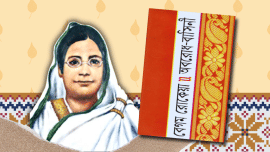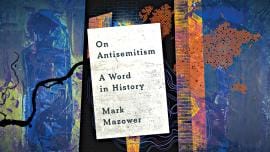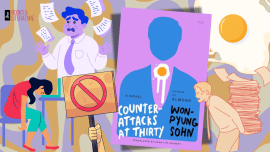BOOK REVIEW: NONFICTION / Cross and concrete: Christianity’s built contradictions
24 December 2025, 07:16 AM
Books & Literature
BOOK REVIEW: FICTION / A tangled knot of wealth and sin
22 December 2025, 11:07 AM
Books & Literature
BOOK REVIEW: FICTION / Finding common ground: How ‘Bela and Lily’ celebrates friendship across cultures
18 December 2025, 12:12 PM
Books & Literature
16 DAYS OF ACTIVISM / The pen that pierced the purdah
9 December 2025, 12:54 PM
Books & Literature
BOOK REVIEW: FICTION / All’s almost well
3 December 2025, 12:44 PM
Books & Literature
BOOK REVIEW: FICTION / Between home and elsewhere
26 November 2025, 18:00 PM
Books & Literature
BOOK REVIEW: NONFICTION / An inter-cultural romance
26 November 2025, 18:00 PM
Books & Literature
BOOK REVIEW: NONFICTION / Contested words, painful genealogies
19 November 2025, 18:00 PM
Books & Literature
BOOK REVIEW: FICTION / An incident amidst nightly escapades
18 November 2025, 12:13 PM
Books & Literature
BOOK REVIEW: FICTION / Growing up ordinary in a toxic work culture
14 November 2025, 09:55 AM
Books & Literature
A legacy of war, exile and division
‘Shattered Lands’ journeys through fractured histories of 1947 Partition that made modern South Asia
6 November 2025, 18:59 PM










